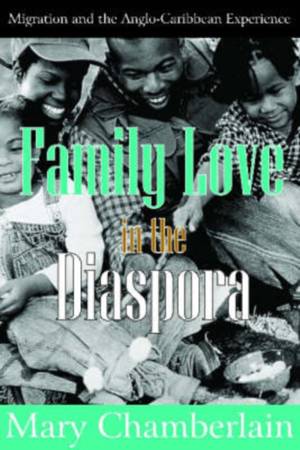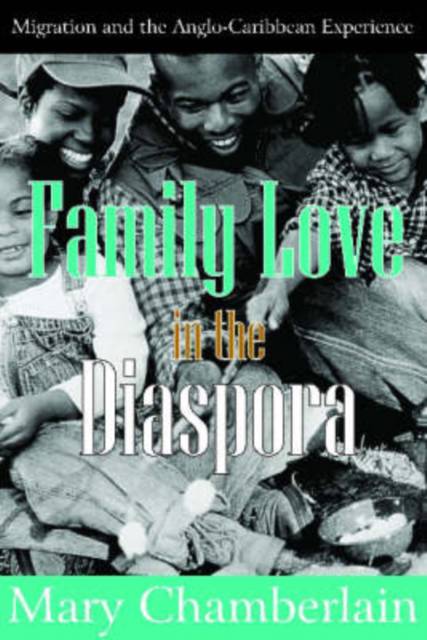
Door een staking bij bpost kan je online bestelling op dit moment iets langer onderweg zijn dan voorzien. Dringend iets nodig? Onze winkels ontvangen jou met open armen!
- Afhalen na 1 uur in een winkel met voorraad
- Gratis thuislevering in België vanaf € 30
- Ruim aanbod met 7 miljoen producten
Door een staking bij bpost kan je online bestelling op dit moment iets langer onderweg zijn dan voorzien. Dringend iets nodig? Onze winkels ontvangen jou met open armen!
- Afhalen na 1 uur in een winkel met voorraad
- Gratis thuislevering in België vanaf € 30
- Ruim aanbod met 7 miljoen producten
Zoeken
€ 195,95
+ 391 punten
Uitvoering
Omschrijving
Colonial social policy in the British West Indies from the nineteenth century onward assumed that black families lacked morals, structure, and men, a void that explained poverty and lack of citizenship. African-Caribbean families appeared as the mirror opposite of the "ideal" family advocated by the white, colonial authorities. Yet contrary to this image, what provided continuity in the period and contributed to survival was in fact the strength of family connections, their inclusivity and support. This study is based on 150 life story narratives across three generations of forty-five families who originated in the former British West Indies. The author focuses on the particular axes of Caribbean peoples from the former British colonies of Jamaica, Trinidad and Tobago and Barbados, and Great Britain. Divided into four parts, the chapters within each present an oral history of migrant African-Caribbean families, demonstrating the varieties, organization, and dynamics of family through their memories and narratives. It traces the evolution of Caribbean life; argues how the family can be seen as the tool that helps transmit and transform historical mentalities; examines the dynamics of family life; and makes comparisons with Indo-Caribbean families. Above all, this is a story of families that evolved, against the odds of slavery and poverty, to form a distinct Creole form, through which much of the social history of the English-speaking Caribbean is refracted. Family Love in the Diaspora offers an important new perspective on African-Caribbean families, their history, and the problems they face, for now and the future. It offers a long overdue historical dimension to the debates on Caribbean families. Mary Chamberlain is professor of modern social history at Oxford Brookes University, in the United Kingdom. She is co-editor of the Transaction Memory and Narrative series, which now has nineteen volumes in print.
Specificaties
Betrokkenen
- Auteur(s):
- Uitgeverij:
Inhoud
- Aantal bladzijden:
- 262
- Taal:
- Engels
- Reeks:
Eigenschappen
- Productcode (EAN):
- 9780765803078
- Verschijningsdatum:
- 1/02/2006
- Uitvoering:
- Hardcover
- Formaat:
- Genaaid
- Afmetingen:
- 164 mm x 236 mm
- Gewicht:
- 535 g

Alleen bij Standaard Boekhandel
+ 391 punten op je klantenkaart van Standaard Boekhandel
Beoordelingen
We publiceren alleen reviews die voldoen aan de voorwaarden voor reviews. Bekijk onze voorwaarden voor reviews.











